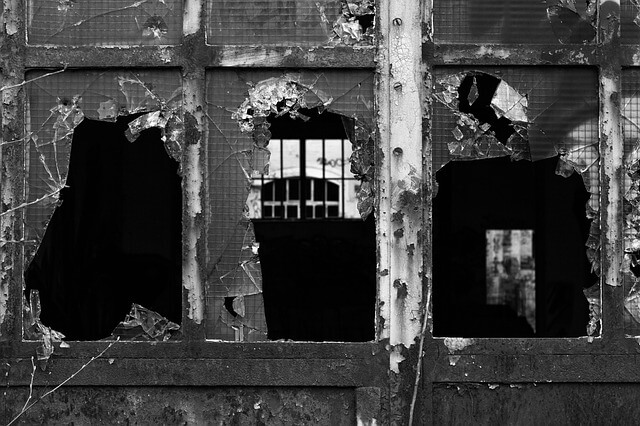Tenant-landlord relationships can be sticky, especially when breaches of lease occur by one party or the other. Whether you are the property-owner leasing out a space, or a business-owner occupying it, you should know about dilapidations advice, in case you end up either side of a breach of covenant. As Building Surveyors in London dealing dilapidations can be one of our most common issues. Unfortunately it’s one that most tenants are not “clued up” on. So let’s take a closer look now.
What Is Dilapidations Advice?
Dilapidations refer to the instances of destruction of a property that might lead a landlord or tenant to seek legal action. These breaches might refer to repair, redecoration, reinstatement or statutory covenants.
Dilapidations advice is legal consult available to both tenants and landlords in the case that one party allegedly breaches one or more covenants, which could eventually lead to dilapidations claims followed by legal proceedings. Because the field of dilapidations is quite specific and complex, expert dilapidations advice can be particularly useful in resolving tenant-landlord conflicts.
What Does the Legal Process Look Like?
The of Schedule of Dilapidations refers to the record of alleged damages as well as suggested remedies, and there are two types of Schedules: those served during the time of the lease, and those served at or after the lease expires. If a conflict results in legal proceedings, the Schedule will become the platform upon which a dilapidations claim and subsequent legal process are based.
First, the landlord will hire a dilapidations surveyor to take note of the building with respect to the survey completed before the tenant occupied the space. (This is when having hired a dilapidations surveyor at the beginning of occupancy can protect a tenant from possible discrepancies.)
When the Schedule of Dilapidations is served to the tenant, she may have the option to choose between uptaking the appropriate remedies and paying a financial settlement, though if the schedule is served at the point of lease expiry, there is only one option: to pay a settlement.
Negotiating a Settlement
Upon the requirement of a financial settlement, the tenant and landlord shall then come together to negotiate a fair settlement amount. There are many factors that contribute to a fair price: the actual monetary loss of the landlord caused by the dilapidations, evidence of such losses, the landlord’s intentions for the property, the agreed-upon lease and its associated liabilities.
Dilapidations advice can have a great impact on the final outcome of these negotiations. Determining proven loss in monetary terms is a complex process, and it’s one that requires a deep understanding of legislation, case law and relevant legal protocols for optimal fairness.
Advice For Landlords and Tenants
It is important to know that landlords cannot profit from a financial settlement, nor can they expect more from their tenants than what is specifically outlined in the lease. Another crucial note refers to the Landlord and Tenant Act 1927, which sets a maximum limit for the amount of money that can be required of a tenant at the end of their lease.
Properly serving Repairs Notices can ensure more compliance from a tenant in the case of damages to the building, versus waiting until lease expiry, when landlords are faced with more limitations and restrictions.
For tenants, it is crucial for them to thoroughly understand the covenants of a lease before signing it. Consider requiring a Schedule of Conditions as part of the lease, to ensure that the condition of the building at the start of the lease remains relevant in case future dilapidations claims or Repair Notices are served.
A Building Survey can also be of service to tenants, to help tenants develop a better understanding of the lease and dilapidations liability, and to aid in lease negotiations.
So, Why Should You Care?
Working with a dilapidations specialist before signing a lease and in the case of conflict can be instrumental for tenants, who are often less savvy with lease liability and dilapidations protocol than landlords might be. Seeking dilapidations advice can both protect tenants from entering into insecure contracts and, in the case of a dilapidations claim, from agreeing to an unfair or unnecessary financial settlement.
Dilapidations advice helps both tenants and landlords prevent and settle disputes to ensure a smoother leasing process for both parties. Protecting your assets is a key element to running a successful business, whether your business makes you the lessor or the lessee.
